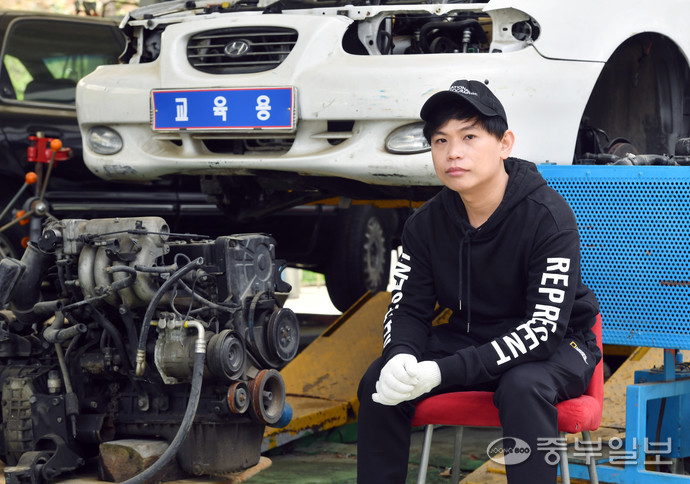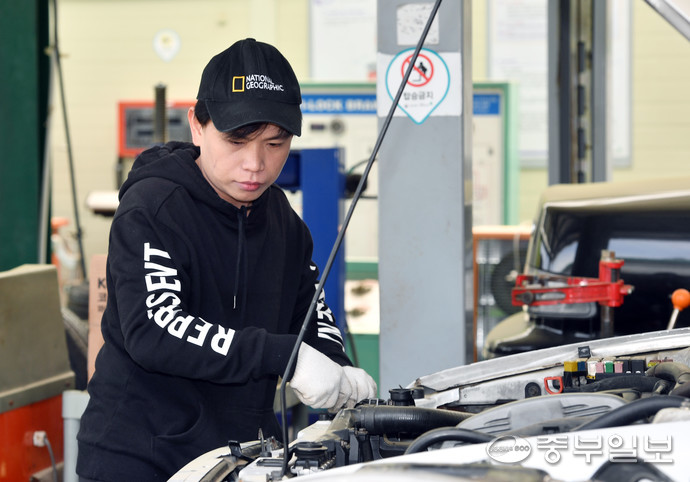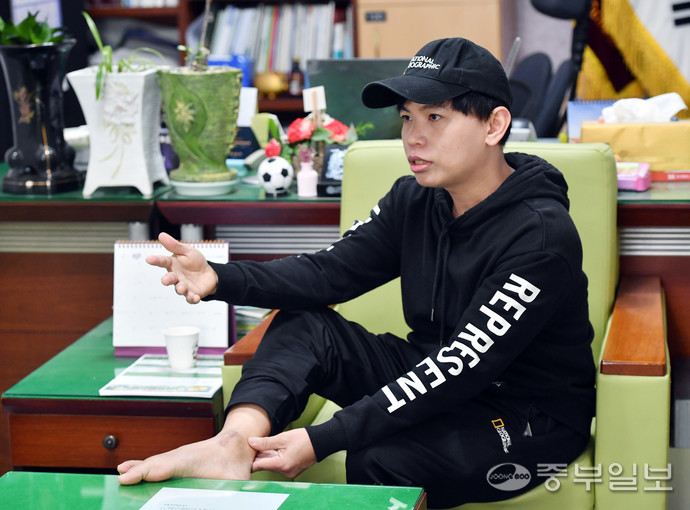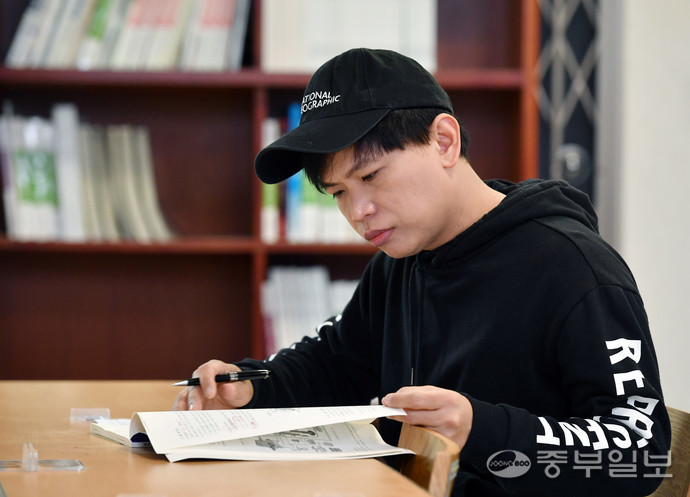This is the era of multiculturalism for 2 million people. If you look around, you can easily see neighbors with different skin colors and languages. However, Korean society's notion of multiculturalism is not keeping up with the changes of the times. To solve this problem, the Joongbooilbo has planned a ‘multi-culture story(다문화 스토리)’ that introduces multicultural neighbors living in various ways. ‘Multi-culture Story(다문화 스토리)’ aims to calmly capture the stories of multicultural people living around us and create changes in Korean society in the age of multiculturalism. -Ed-.

The scars left all over the body are like decorations of the head of a family. There is only one reason why he is doing manual labor in a country where he can't speak the language, it's because of family. Prior to coming to Korea, Norvin Joy Ledesma, a migrant worker from the Philippines, lived comfortable life running an internet cafe. However, after getting married and having a child, his life goals changed little by little. He wanted to give his daughter a better future and greater prosperity. In 2014, he came to Korea. Ten years have passed since he came to Korea with responsibility for his family. Like the first wish, families in their home countries are also enjoying financial stability. He says he was very lucky to come to Korea. Recently, with the help of the Korean government, he started to learn car maintenance and construction machinery driving. He thinks that the skills he has learned will be useful when he returns to my home country for getting a job or running his own company. Joongbooilbo met Nobin at a vocational school in Gwangju, Gyeonggi-do, who is writing down the ‘Korean Dream’ as the name of the head of the household.
-What made you come to Korea?
When I was in the Philippines, I had an Internet Cafe business. It was relatively stable. However, as my child grew older, I realized that economic affluence is more important. In the meantime, I heard that I could earn more money If I go to Korea, so I closed the PC room business and decided to work in Korea.
- Where did you start working at first?
The first place I worked was a shipyard in Mokpo. I worked as a welder. At first, the stress from people was more severe than from work. In particular, when my seniors at work ordered me to do something, I was very embarrassed because I felt like their voices got louder and sounds angry. Also, they always urged me to ‘quickly, quickly’, and I felt a lot of pressure because of this.

- Have you ever felt discriminated against because you are a foreigner?
I've never thought of it like that. My superiors needed to tell me about the requirements two or three times because I was not good at Korean. They might feel stuffy. I think they couldn't help it because communication wasn't smooth.
- A large scar is visible on the right ankle. Did it happen while you were working?
After working at the shipyard for about three years, I quit due to problems with non-payment of wages. Afterward, I got a job at a factory that made ventilators by processing steel plates. Then one day, while I was doing my usual work, a steel plate suddenly landed on top of my right ankle. One of my colleagues called an ambulance and I was immediately taken to the hospital. Upon examination, I found that a bone in my ankle was broken. A few days later, I underwent surgery.
- It must have taken a long time to recover.
I was in the hospital for about a week. As I know, the doctor told the company that since the operation was over, it would be okay to receive outpatient treatment.

-Did the company press you to return to work?
Not at all. The company asked me to rest until I was completely healed. But after taking a break for about a month, I was very anxious. It reminded me a lot of my family in the Philippines. I couldn't just receive treatment because I had no income. So, I asked the company to entrust me with a task that I could work on with only my hands. The company understood my circumstances and gave me tasks that I could do without moving. I appreciated it for allowing me to work.
-You must have been exhausted. Didn't you think of going back to the Philippines?
Of course, I really want to go back to the Philippines. However, for my family's future, it was best to remain in Korea and earn money. The company also recognized my work attitude and ability, so there was no reason to return. Around the time my visa was about to expire, the company designated me as a Sincere Worker and I was able to extend my visa.
-Are you still working for the same company?
Currently, I am working in a factory that makes air conditioner ducts. The salary has risen since I first came. And I feel comfortable living in Korea. So I am living with satisfaction.
-I can feel that you are missing your family a lot
I really want to see my daughter. Especially, when work is hard and stressful, I want to see my family more than usual. I want to bring them to Korea, but the conditions are not proper. My biggest joy of the day is making video calls with them. When I see my daughter's reaction, I want to run right away.

-Are your family members living on money you remit from Korea?
Yes. Excluding the minimum cost of living in Korea, most of the money is sent to my family in the Philippines. The house where the family currently resides also needs remodeling, and the cost of education and living expenses for the children are high. As in almost all families, most conversations with my wife are about money (laughs). However, I'm satisfied with that if my family can live a comfortable and happy life.
-How long do you plan to stay in Korea?
The current visa validity period is until 2025. But if I can extend my visa, I want to stay in Korea longer and bring my family.
-Have you tried to bring your family to Korea?
Of course. However, the process of bringing family to Korea is not as simple as you might think. With my current visa (E-9: non-professional employment status), I cannot bring my family to live at will. In order to legally grant a visa to a family member, I must get the company's consent, obtain the relevant documents, and submit them during the visa screening process. Two or three years ago, I asked the company to invite my family, but at the time, it was not possible because COVID-19 was spreading. I'm going to ask the company again soon.
-I know that you work in a factory on weekdays and receive vocational training on weekends
Human Resources Development Service of Korea(한국인력공단) provides free vocational training for foreign workers. Currently, I am learning vehicle maintenance and construction machinery operation at the Green Vocational School in Gwangju. I am learning hard because I think that later when I go back to the Philippines, I will be able to use the skills I have learned to run a business or find another job.
-This is the last question. What does Korean Dream mean to you?
Currently, I am very happy. I got the opportunity to work in Korea and make my family living with financial stability. However, my Korean dream is not completed yet. I don't know when it will be, but the day I live together with my family, whether it's in Korea or the Philippines, my Korean dream will be complete.
By Seyong Lee
Photos by Kyung-min Kim
